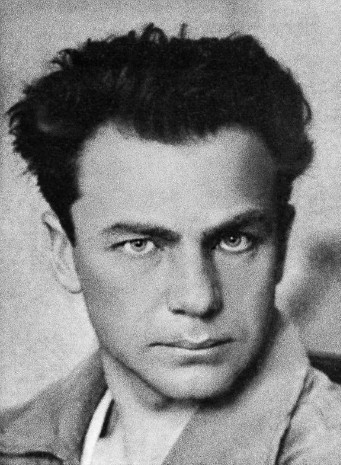Holovko, Andrii
Holovko, Andrii [Головко, Андрій], b 3 December 1897 in Yurky, Kobeliaky county, Poltava gubernia, d 5 December 1972 in Kyiv. A prominent first-generation Soviet-Ukrainian writer. Although he initially fought for Ukraine’s independence as a soldier in the Army of the Ukrainian National Republic, in 1920 he went over to the Red Army. Holovko began his literary career with the poetry collection Samotsvity (Gems, 1919), and joined the peasant writers’ group Pluh. His early prose collections— Divchynka z shliakhu (The Little Girl from the Road, 1923), Chervona khustyna (The Red Kerchief, 1924), Mozhu (I Can, 1926), Pylypko (1928), and others—were imbued with revolutionary romanticism. His novel Bur'ian (Weeds, 1927) depicts the arbitrariness of rural Bolshevik leaders in the first years after the Revolution of 1917. Holovko’s most important work is his novel Maty (Mother, 1932); dealing with events in the Ukrainian countryside during the Revolution of 1905–7, it was censured by Party critics as nationalist, and its second edition (1934) was revised to conform to the dictates of socialist realism. His trilogy Artem Harmash (1951, 1960, and 1970), which depicts events in the countryside during the October Revolution of 1917 in Ukraine, is a typical Soviet literary work. Holovko’s other works include the plays V chervonykh shumakh (In the Red Din, 1924) and Rais’ke iabluko (The Crabapple, 1926), the film script Lita molodiï (Youthful Years, 1956), and the cinenovella Skyba Ivan (1934). His works have been republished many times; a five-volume collection appeared in 1976–7 and a bibliography of his works was prepared by T. Maievska in 1964.
Ivan Koshelivets
[This article originally appeared in the Encyclopedia of Ukraine, vol. 2 (1988).]

